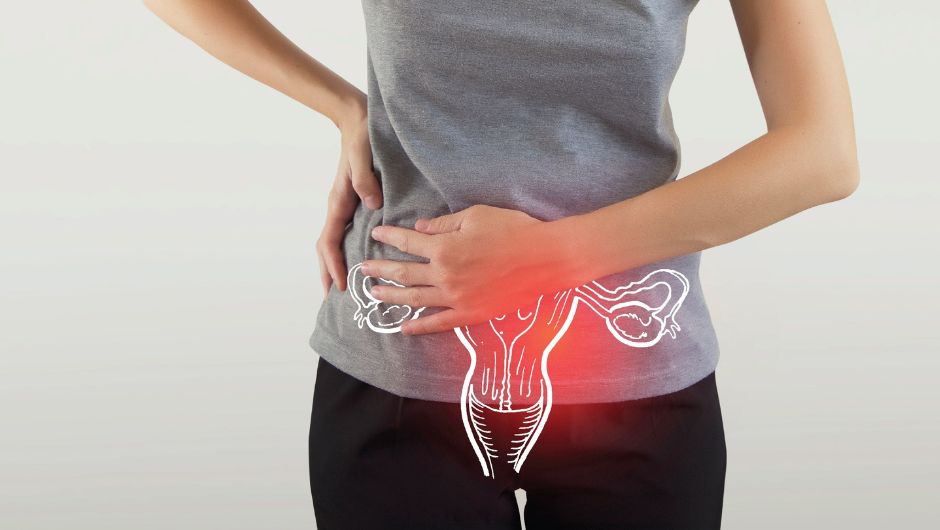What is PCOS & PCOD?

PCOD or PCOS is a condition that impacts a woman’s ovaries, which are the important organs responsible for making hormones like progesterone and estrogen. These hormones play a big role in managing the menstrual cycle and also produce some other hormones like inhibin, relaxin, and male hormones known as androgens. Around 10% of women worldwide have PCOD. When we compare PCOD to PCOS, women with PCOS create more male hormones than they should. This imbalance in hormones can lead to skipped periods and can make it tougher for them to become pregnant. PCOS involves ovarian cysts, while PCOD is a related term.
Understanding the PCOD:
PCOD (Polycystic Ovarian Disease) is a health issue where a woman’s ovaries make many immature or partially mature eggs that turn into cysts over time. Because of this, the ovaries become bigger and release more male hormones (androgens), leading to problems like trouble getting pregnant, irregular periods, hair loss, and unusual weight gain. The good news is that PCOD can be managed with changes in diet and lifestyle.
Understanding the PCOS:
PCOS (Polycystic Ovary Syndrome) is a metabolic issue that affects women during their reproductive years (from around 12 to 51 years old) due to hormonal imbalances. Because of higher levels of male hormones, women might miss periods, struggle with irregular ovulation that makes pregnancy difficult, experience extra hair growth on the body and face, and even face risks of heart disease and diabetes later on. PCOS is a significant medical concern, needing proper medical care or sometimes surgical treatment.
Ayurvedic Perspective on PCOD & PCOS :
In Ayurveda, PCOS/PCOD is categorized as “Artavdusti,” which pertains to menstrual cycle issues, and “yonirogas,” which signifies uterine disorders. According to Ayurveda, PCOS arises due to an imbalance in the Kapha Dosha, which obstructs the Pitta and Vata Doshas – these three Doshas collectively form our body’s constitution. Ayurvedic treatment targets the reduction of excess Kapha, along with clearing the obstructions in Vata and Pitta through the implementation of a balanced diet, regular exercise, and the use of herbal supplements.
What Are the Typical Signs and Symptoms of PCOD and PCOS?
If not timely controlled can lead to long term problems like Infertility, diabetes, hypertension & depression. Some of the common primary symptoms are given below.
Primary symptoms include -:
- Irregular menstrual cycle
- weight gain
- Unwanted hair growth on face & Acne
- Increased levels of male hormones
- Thinning of scalp hair
- Pigmentation of skin on neck area
- Irritability & depression
Lifestyle Modification And Treatment for PCOD / PCOS:
PCOD / PCOS mainly messes with the body’s hormonal balance in women. These steps can assist in lowering androgen levels.Eating Right, Staying Active & Exploring Herbal Remedies. Remember, small changes in your routine can make a big difference in managing PCOD effectively.
1. Diet
- Choose Wisely: Steer clear of sugary foods and cut down on salt.
- Embrace Greens and Fruits: Incorporate green leafy veggies and have a seasonal fruit daily. Veggies like bitter gourd and drumsticks have qualities that reduce excess kapha in the body. Boost your iron intake with spinach, broccoli, beetroot, and carrots.
- Healthy Fats Matter: Your body requires healthy fats for hormone production. Include olive oil, avocado, eggs, salmon, coconut oil, walnuts, flax seeds, and nuts in your diet. And don’t forget about desi ghee – a small amount on an empty stomach can be beneficial.
- Lunar Influence: Ayurveda connects the 28-day moon cycle with the menstrual cycle. Drinking moon-charged water on an empty stomach helps balance hormones and cycles.
- Plant Estrogens: To restore estrogen balance naturally, opt for foods rich in plant estrogen. Incorporate soy, carrots, garlic, onions, sprouts, flax seeds, and pumpkin seeds instead of relying on hormonal pills.
- Anti-Androgenic Allies: Fennel seeds, mint/pudina leaf water, and basil/tulsi leaves work to reduce excess testosterone and inflammation. Swap out your regular tea and coffee for green or herbal tea.
2. Exercise
Engage in physical activity for a minimum of 45 minutes every day. Incorporate yoga postures like Dhanurasana, Ustrasana, Vajrasana, Vrikshasana, Shalbhasana, and Titliasana into your routine to help manage PCOD and PCOS. These asanas can be beneficial for overcoming the challenges associated with PCOD and PCOS. Remember to personalize your practice to suit your comfort and capabilities.
3. Herbal Formulations
- Shatavari & Ashoka normalize estrogen levels and menstrual cycle.
- Triphala detoxifies and removes obstructions, aiding weight regulation.
- Giloy improves metabolism and insulin resistance.
- Ashwagandha reduces stress, anxiety, and boosts immunity.
By implementing these changes, individuals can take proactive steps towards effectively managing PCOD and PCOS, improving their overall well-being. Remember, consulting a healthcare professional before making significant dietary or lifestyle changes is advisable.